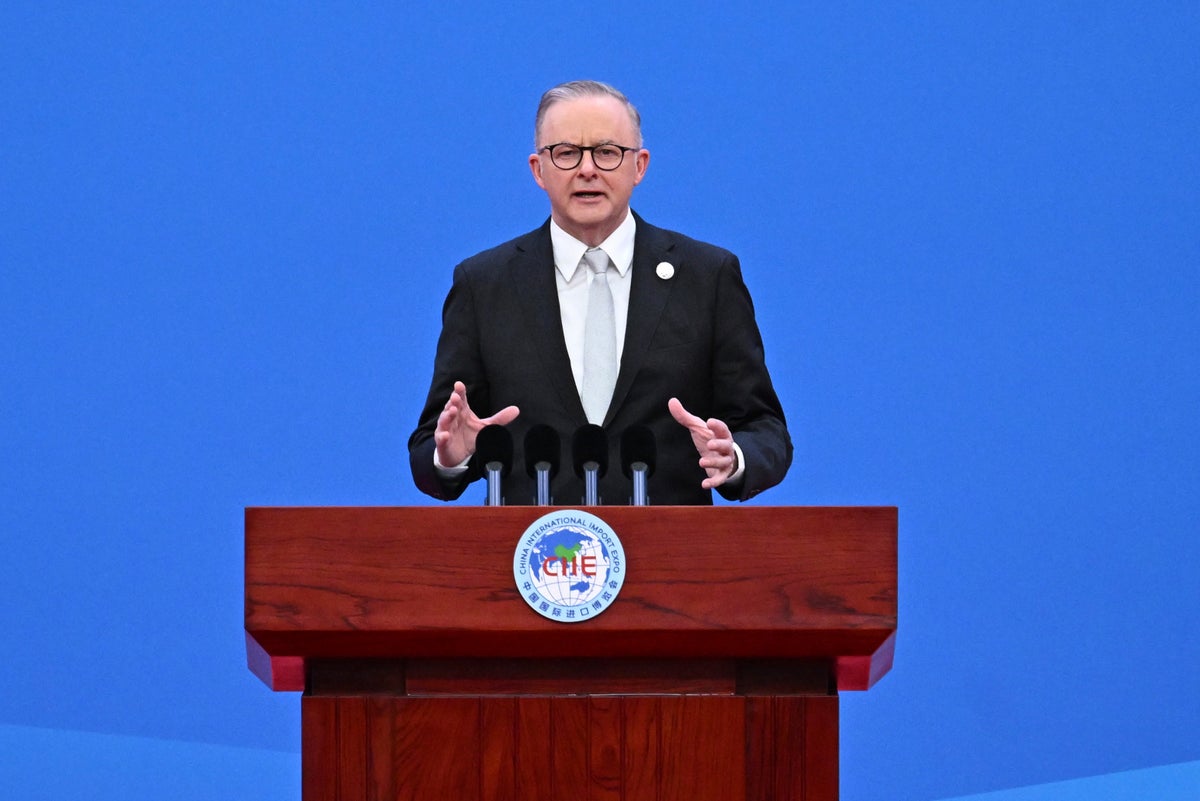
Seeking to generate excitement around a largely lackluster economy, Chinese Premier Li Qiang on Sunday pledged to continue deepening reforms, expand free trade zones and relax market access for foreign investment.
Li made the remarks when delivering a keynote speech at the opening of the 6th China International Import Expo in Shanghai, seeking to draw thousands of foreign businesses shopping for Chinese products and looking to expand trade and investment with the world's second-largest economy.
China's economy expanded at a 4.9% annual pace between July-September, beating analysts’ forecasts of about 4.5%, official data show. But that was much slower than the 6.3% annual growth rate of the previous quarter.
The Chinese government has adopted various policies to help the economy; raising spending on building ports and other infrastructure, cutting interest rates and easing curbs on home-buying. But economists say wider reforms are needed to address long-term problems that are stifling growth.
The expo between Nov. 5-10 is an annual event launched by President Xi Jinping in 2018 with the theme of promoting China’s image as being in favor of free trade.
“We will further relax market access ... protecting the rights and interests of foreign investment in accordance with the law, and continue to create a market-oriented, legal, and international business environment,” Li said at the opening.
Foreign businesses have complained of a worsening investment environment in China, particularly with the passage of new legislation that could deem the possession of standard economic data as being a form of espionage. American businesses have said current conditions make it almost impossible to invest in China without taking on significant risks.
This year’s expo brought Australian Prime Minister Anthony Albanese, currently paying an official visit to China which is largely focused on restoring trade links blocked for years due to economic and political tensions.
From the outset of his prime ministership, Albanese had demanded that China immediately lift what he described as “unjustified” official and unofficial trade barriers costing Australian exporters 20 billion Australian dollars ($13 billion) a year.
Those barriers have since been substantially reduced and now cost around AU$2 billion ($1.3 billion).
“The fact that it is the first visit in seven years to our major trading partner is a very positive step and I look forward to constructive discussions and dialogue with the president and the premier during my visit to Shanghai and Beijing,” Albanese said.
More than 200 Australian companies are being represented at the Shanghai fair.
Albanese has signaled that Australia won’t back China’s bid to join the free trade agreement known as the 12-nation Comprehensive and Progressive Agreement for Trans-Pacific Partnership, or the CPTPP, saying China did not live up to the proposed standards.
Despite that, Li said China would continue to “actively pursue the accession to the CPTPP and the Digital Economy Partnership Agreement and negotiate for the conclusion of more high standard free trade agreements.”







